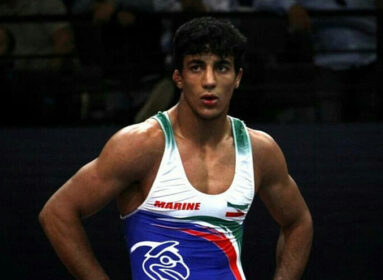Polish-Jewish relationship is a complex, multi-layered subject, says Holocaust scholar
By Cindy Mindell
The history of the Polish-Jewish relationship is, in a word, complex, colored by the country’s strict brand of Catholicism and related antisemitism, and its multifaceted conduct during World War II.
Historian Michael Dobkowski will explore the subject on Thursday, Nov. 8 at Sacred Heart University in Fairfield. A professor of religious studies at Hobart and William Smith Colleges in Geneva, N.Y., Dobkowski’s main areas of interest include Holocaust studies, American antisemitism, the American Jewish experience, the history of Judaism, and the history of Zionism and modern Israel.
He spoke with the Ledger about the Polish-Jewish relationship, past and present.
Q: The phrase, “Polish-Jewish relations” raises a jumble of images and concepts – Vatican II, Pope John Paul II, the Jewish Cultural Festival in Krakow, the new museum of Polish Jewish History in Warsaw, and of course, the concentration camps. How do you define “Polish-Jewish relations”?
A: We have to begin by recognizing that the Polish-Jewish relationship is a very old one – 600, 700 years or older – and a very important one. It begins, generally, in positive ways and, over time and history – like in many other places Jews would live for a long time – it’s had its period of great creativity and tolerance, relatively speaking, as well as periods of great tragedy.
Poles and Jews have lived together for a long time and know each other – in some cases, intimately and incredibly well, and in other cases and situations, not so well. That’s the backdrop for what happens during World War II.
Another theme is Polish antisemitism. Poland is a very Catholic country, and no one would deny that, historically speaking, there was a significant amount of antisemitism, but a good deal of that history of antisemitism is colored by what happened during World War II. One controversial question is, did historic Polish antisemitism contribute to what happened to the Jewish people in Poland during the Holocaust? Poles are very sensitive about this. Poland is very anxious to make sure that people understand that the Holocaust occurred on Polish land but was not perpetrated by Polish people. That’s not to say that there weren’t Polish perpetrators and violence directed at Jews by Poles.
But one question we have to ask is: Is the problem of Polish antisemitism more significant than in other countries in Europe? It’s a complicated question to unravel. Many Polish Jewish survivors have negative things to say about their experiences: they were subjected to antisemitism in Poland, they were afraid of Polish people; some were turned in by Poles. Others say that they were saved and helped by Poles and that’s also true.
Q: How do you approach this subject as a scholar?
A: As a historian, I look at whether there are any patterns here: was the experience different in big cities vs. the countryside? That’s another kind of complication. If you look at the history of the Polish rescue of Jews, Yad VaShem’s category of Righteous among the Nations recognizes something like 24,000 or 26,000 individuals, and in that number, there are well over 6,000 Poles identified, the largest nationality group. In the context of the Holocaust, more Polish Jews died than the Jews of any other nationality – between 3.1 million and 3.3 million, 90-plus percent of the Polish Jewish population.The six major killing camps were situated in Poland, so there is a Polish context to the Holocaust, but the Poles are correct to point out that they didn’t build or run the camps. Poles themselves were victimized by the Nazis and suffered some three million targeted killings.
So depending on who you read and what your perspective is, you will get this story told more or less from one of these two general narratives – the Polish narrative, that Poles did not victimize Jews and were also victims; there were no more Polish collaborators with the Nazis than other nationalities and maybe fewer; the Polish resistance movement was more significant than other resistance movements. Even within the Polish resistance movements, the nationalistic ones killed a lot of Jews and were susceptible to the historic Polish antisemitism. Other mainstream resistance movements, like that led by the Polish government in exile in London, were more open to cooperating with Jews and the Jewish resistance and saving a lot of Jews. It’s a complicated story.
For some people, those who would find themselves perhaps on the Jewish narrative side – Jews had a very tough time in Poland and the Polish people were not good to them – they would say that Poland is the world’s largest Jewish cemetery and maybe we want to visit it as we do a cemetery, but we don’t want to live in a cemetery. So therefore we should not be interested in going back to Poland, rebuilding Jewish life in Poland, and are not that interested in having much to do with Poland, at least until several generations pass. That’s becoming a minority opinion.
Q: What’s going on now in Poland a propos the Jewish community?
A: Since the ‘90s, Poland has been very interested in rebuilding positive relationships with the Polish Jewish diaspora communities around the world and with Israel. Over the last 10 to 15 years, they have been creating strong relationships with Israel and the U.S.; even within the Polish Ministry of Foreign Affairs, they have ambassadors with portfolios on official relationships with the Jews. Since there aren’t more than 30,000 Jews in Poland, that’s strange. But from my point of view, the Polish position correctly recognizes that a chunk of Jewish history was ripped out of Poland and Poland needs to do what it can to weave it back into Polish national history.
There are larger numbers of Polish people today sincerely interested in rebuilding communities and relationships and exploring Polish Jewish history, even if it takes them to some ugly places. The Museum of Polish Jewish History in Warsaw; the Polish Jewish Festival in Krakow; the slow rebuilding of Jewish infrastructure – reclaiming and rebuilding synagogues, both as museums and as functioning houses of worship; identifying Jewish cemeteries as they can find them and cleaning them up; the JCC in Krakow opened five or so years ago; the Lauder Foundation’s work in Poland to fund a couple of Jewish schools.
Post-Vatican II, there has been a lot of positive history and interaction, particularly in the last 20 years.
I think Poland is on the right track. I think we should encourage that and if we have a way to do so, in our own small ways – visiting Poland, supporting the rebuilding of Jewish life. We were an intricate part of Polish society and we need to honor that by recognizing it and reclaiming it.
Dr. Michael Dobkowski will speak on the topic of “Rethinking Polish-Jewish Relations during the Holocaust: Anatomy of a Complex Relationship” on Thursday, Nov. 8, 7 p.m., at Sacred Heart University Commons, 5151 Park Ave., Fairfield | Info: (203) 371-7999.
Comments? Email cindym@jewishledger.com








 Southern New England Jewish Ledger
Southern New England Jewish Ledger














